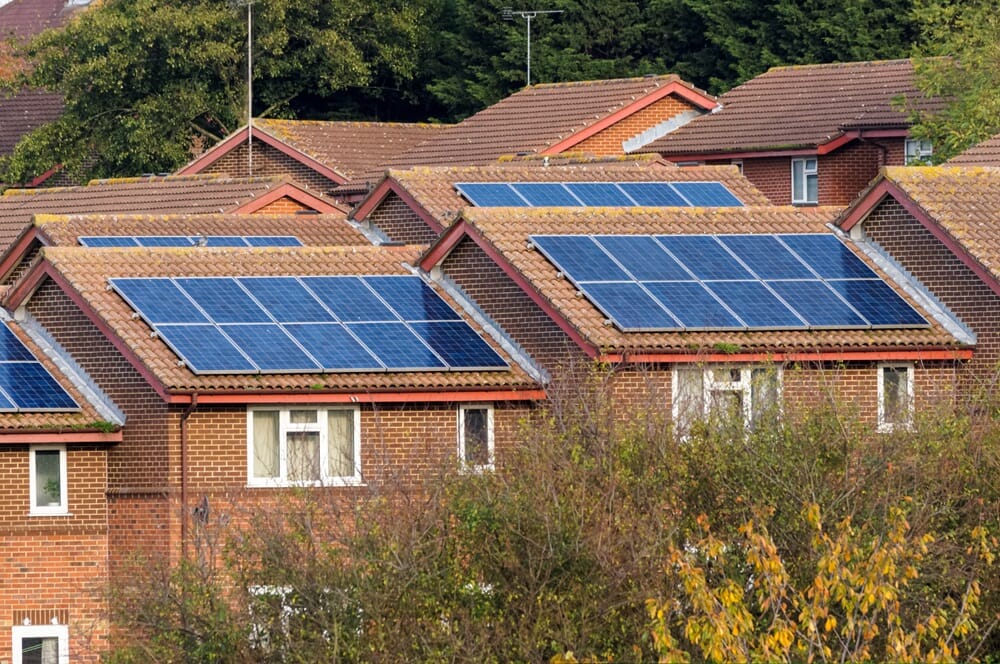Understanding green energy certificates in the UK
As the UK moves toward net zero, there’s an increasing focus on how buildings use and source energy. According to the UK Green Building Council (GBC), 19% of the UK’s carbon footprint comes from energy needed to heat, cool, and power our buildings, making it a critical area for intervention.


Green energy certificates are just one of the tools helping to decarbonise the built environment. If you’re involved in planning, designing or operating buildings, obtaining a green energy certificate allows you to demonstrate your commitment to sustainability and provide credible evidence that your project is powered by, or supports, the generation of renewable energy.
In this blog, we break down the UK’s renewable energy certification schemes and explore how they can help your building reduce its carbon impact.
What are green energy certificates?
Green energy certificates (also known as Renewable Energy Guarantees of Origin or REGOs) are official documents that prove whether electricity has been generated from renewable sources like wind, solar, or hydro power. For every megawatt hour (MWh) of electricity produced from renewable sources, the energy supplier will receive one REGO certificate. These certificates can then be sold or allocated to energy users to prove which portion of electricity consumption is matched by renewable generation.
It’s important to note that holding a green energy certificate doesn’t mean that renewable electricity is being delivered directly to your building. Instead, it confirms that the same amount of renewable energy has been added to the national grid to match your usage, which lowers the overall carbon intensity of the grid itself.

How energy certificates feed into green building compliance
Green energy certificates can help you demonstrate compliance with the UK’s leading sustainable building assessments, including:
BREEAM
The BREEAM framework rewards buildings that utilise energy-efficient design, low operational emissions, and the responsible sourcing of energy. Although REGOs do not directly affect the calculation of building energy performance under the BREEAM Ene 01 category (as this is based on predicted energy use rather than how that energy is sourced), they can support your building’s performance under related credits such as Ene 02 (Energy Monitoring), and may contribute to bespoke solutions under the Innovation category.
You can also reference your use of green tariffs backed by REGOs in your project’s energy procurement narrative or low-carbon strategy to strengthen your overall BREEAM submission. We can help you navigate the complexities of BREEAM compliance and suggest where green energy certificates could be used to increase your overall BREEAM score.
LEED
International systems like LEED also take into account the environmental impact of a building’s energy usage. Green tariffs supported by REGO certificates can help you achieve valuable energy credits under the LEED v4 and v4.1 rating systems.

The role of energy labelling
Energy labels, such as Energy Performance Certificates (EPCs), serve a different purpose to green energy certificates. However, they can be used to complement this certification. REGOs verify the origin of the electricity supplied, whereas EPCs assess a building’s energy efficiency. Together, they offer a complete picture of a building’s energy performance and its overall impact on the environment.
We provide tailored EPCs, SAP and SBEM calculations across a wide range of building types. Our SBEM calculations are designed to assess the energy consumption and fabric energy efficiency of non-residential buildings, whilst our SAP calculations measure the energy performance of residential buildings. We can then use this data to apply for EPCs at the point of construction, sale, or rent, allowing your prospective buyers or tenants to factor in the building’s projected energy consumption within their living expenses.
Helping you achieve your sustainability goals
Green energy certificates are an invaluable tool for demonstrating your commitment to the environment, but it’s important to consider how they will fit into your overall energy and sustainability strategy.
At Encon Associates, we can help you make sense of, and ultimately reduce, your building’s energy use, providing you with expert solutions that strengthen your planning applications and ensure compliance with the UK’s regulatory requirements. If you’re looking to obtain BREEAM certification or need help with EPCs, SAP or SBEM calculations, we can help you meet your sustainability goals with confidence.
Get in touch to discover how we can support your next project.
Call: 01159 875 599 or email:
We have now worked with Encon Associates for 3 years and have an excellent relationship with them – we would highly recommend them to any size organisations as they have the capability to work small or large scale.
The scope of skills/services that Encon Associates provide are fantastic, kept all neatly under one roof, which again is a bonus when coordinating our developments.
May our great relationship continue in to the future.
